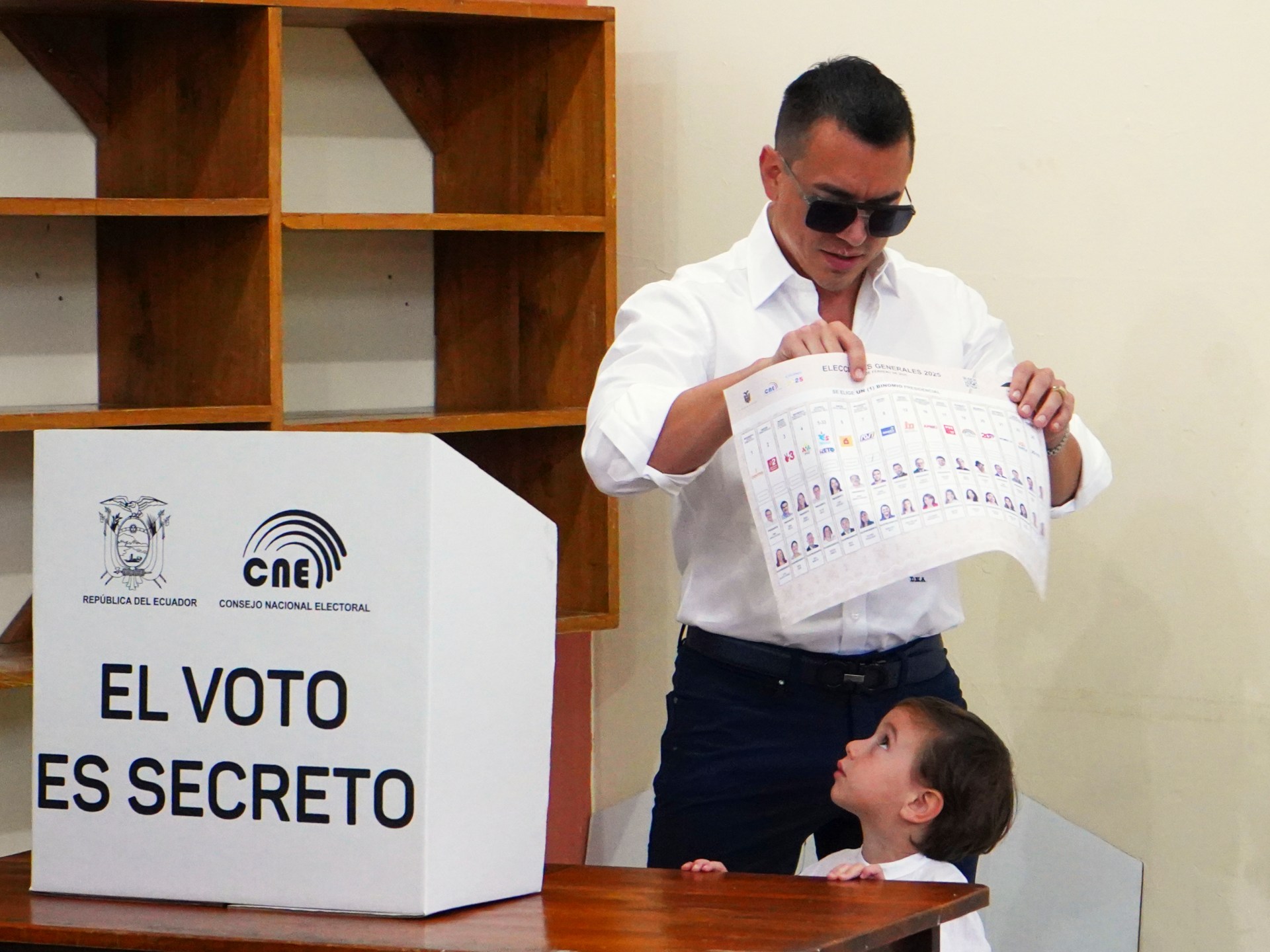South America
President Daniel Noboa questions first-round results of Ecuador’s election

Ecuador’s Presidential Election Crisis: A Nation Divided
Introduction: A Nation in Political Turmoil
Ecuador is once again at the center of a political storm as President Daniel Noboa has publicly questioned the integrity of the recent presidential election, raising concerns about the legitimacy of the first-round results. The nation, already grappling with a history of political tensions, now faces a challenging runoff between Noboa and his rival, Luisa Gonzalez. The allegations of irregularities, coupled with the absence of concrete evidence, have set the stage for a contentious electoral process, drawing international attention and scrutiny.
Disputed Results and International Response
President Noboa has expressed skepticism over the first-round results, citing "irregularities" without providing substantiating evidence. This move has been met with swift responses from independent election observers, including the Organization of American States (OAS) and the European Union (EU), who have found no significant discrepancies. Their statements underscore the transparency and fairness of the electoral process, reinforcing the credibility of the official results. However, the lack of evidence from Noboa’s side has not deterrent his assertions, fueling further political polarization.
A History of Rivalry: Noboa vs. Gonzalez
The rivalry between Noboa and Gonzalez dates back to the 2023 snap elections, which followed the dissolution of the National Assembly under former President Guillermo Lasso. Emerging as unexpected winners, both candidates have since been engaged in a fierce competition, marked by mutual accusations and public spats. Their political ideologies and backgrounds add depth to their rivalry, with Noboa representing a center-right coalition and Gonzalez aligned with the left-wing movement of former President Rafael Correa. The 2025 elections highlight not just a clash of personalities but a broader ideological struggle shaping Ecuador’s future.
The Runoff and Its Significance
The first-round results have set the stage for an intense runoff on April 13, with both candidates securing roughly 44% of the vote. The runoff is not just a battle for political dominance but also a test of Ecuador’s democratic resilience. Each candidate has accused the other of undermining the electoral process, with Noboa hinting at criminal influences and Gonzalez pointing to unconstitutional campaign tactics. These allegations reflect deeper issues of governance and accountability, setting a high stakes scenario for the runoff.
Political Backgrounds and Challenges
Noboa’s background as a banana industry baron’s son and his rise to power through a center-right coalition contrast sharply with Gonzalez’s association with the controversial Rafael Correa. Correa’s legacy, marked by both developmental strides and corruption charges, influences Gonzalez’s campaign, as she seeks to balance her mentor’s impact while carving her own political identity. Meanwhile, Noboa faces criticism for his handling of crime and human rights issues, which Gonzalez has capitalized on, accusing him of ineffective governance.
Implications for Ecuador’s Future
The outcome of the runoff holds significant implications for Ecuador’s political landscape. The intense rivalry and mutual accusations threaten to erode public trust in the electoral process, potentially destabilizing the nation. International observers will play a crucial role in ensuring transparency, while the candidates must navigate the challenges of uniting a divided electorate. As Ecuador approaches the runoff, the nation stands at a crossroads, where the principles of democracy and accountability will be tested. The next chapter in Ecuador’s political saga is poised to shape its future, with the world watching closely.











